Standard Energy Drinks
Organic Energy Drinks
Sugar-Free Energy Drinks
Functional Energy Drinks
Supermarkets
Convenience Stores
Online Retail
Health and Fitness Stores
Teenagers
Young Adults
Middle-Aged Adults
Fitness Enthusiasts
Cans
Bottles
Pouches
North America
Europe
South America
Asia Pacific
Middle East and Africa
North America Outlook (USD Billion, 2019-2035)
North America Energy Drinks Market by Product Type
Standard Energy Drinks
Organic Energy Drinks
Sugar-Free Energy Drinks
Functional Energy Drinks
North America Energy Drinks Market by Distribution Channel Type
Supermarkets
Convenience Stores
Online Retail
Health and Fitness Stores
North America Energy Drinks Market by Consumer Demographics Type
Teenagers
Young Adults
Middle-Aged Adults
Fitness Enthusiasts
North America Energy Drinks Market by Packaging Type
Cans
Bottles
Pouches
North America Energy Drinks Market by Regional Type
US
Canada
US Outlook (USD Billion, 2019-2035)
US Energy Drinks Market by Product Type
Standard Energy Drinks
Organic Energy Drinks
Sugar-Free Energy Drinks
Functional Energy Drinks
US Energy Drinks Market by Distribution Channel Type
Supermarkets
Convenience Stores
Online Retail
Health and Fitness Stores
US Energy Drinks Market by Consumer Demographics Type
Teenagers
Young Adults
Middle-Aged Adults
Fitness Enthusiasts
US Energy Drinks Market by Packaging Type
Cans
Bottles
Pouches
CANADA Outlook (USD Billion, 2019-2035)
CANADA Energy Drinks Market by Product Type
Standard Energy Drinks
Organic Energy Drinks
Sugar-Free Energy Drinks
Functional Energy Drinks
CANADA Energy Drinks Market by Distribution Channel Type
Supermarkets
Convenience Stores
Online Retail
Health and Fitness Stores
CANADA Energy Drinks Market by Consumer Demographics Type
Teenagers
Young Adults
Middle-Aged Adults
Fitness Enthusiasts
CANADA Energy Drinks Market by Packaging Type
Cans
Bottles
Pouches
Europe Outlook (USD Billion, 2019-2035)
Europe Energy Drinks Market by Product Type
Standard Energy Drinks
Organic Energy Drinks
Sugar-Free Energy Drinks
Functional Energy Drinks
Europe Energy Drinks Market by Distribution Channel Type
Supermarkets
Convenience Stores
Online Retail
Health and Fitness Stores
Europe Energy Drinks Market by Consumer Demographics Type
Teenagers
Young Adults
Middle-Aged Adults
Fitness Enthusiasts
Europe Energy Drinks Market by Packaging Type
Cans
Bottles
Pouches
Europe Energy Drinks Market by Regional Type
Germany
UK
France
Russia
Italy
Spain
Rest of Europe
GERMANY Outlook (USD Billion, 2019-2035)
GERMANY Energy Drinks Market by Product Type
Standard Energy Drinks
Organic Energy Drinks
Sugar-Free Energy Drinks
Functional Energy Drinks
GERMANY Energy Drinks Market by Distribution Channel Type
Supermarkets
Convenience Stores
Online Retail
Health and Fitness Stores
GERMANY Energy Drinks Market by Consumer Demographics Type
Teenagers
Young Adults
Middle-Aged Adults
Fitness Enthusiasts
GERMANY Energy Drinks Market by Packaging Type
Cans
Bottles
Pouches
UK Outlook (USD Billion, 2019-2035)
UK Energy Drinks Market by Product Type
Standard Energy Drinks
Organic Energy Drinks
Sugar-Free Energy Drinks
Functional Energy Drinks
UK Energy Drinks Market by Distribution Channel Type
Supermarkets
Convenience Stores
Online Retail
Health and Fitness Stores
UK Energy Drinks Market by Consumer Demographics Type
Teenagers
Young Adults
Middle-Aged Adults
Fitness Enthusiasts
UK Energy Drinks Market by Packaging Type
Cans
Bottles
Pouches
FRANCE Outlook (USD Billion, 2019-2035)
FRANCE Energy Drinks Market by Product Type
Standard Energy Drinks
Organic Energy Drinks
Sugar-Free Energy Drinks
Functional Energy Drinks
FRANCE Energy Drinks Market by Distribution Channel Type
Supermarkets
Convenience Stores
Online Retail
Health and Fitness Stores
FRANCE Energy Drinks Market by Consumer Demographics Type
Teenagers
Young Adults
Middle-Aged Adults
Fitness Enthusiasts
FRANCE Energy Drinks Market by Packaging Type
Cans
Bottles
Pouches
RUSSIA Outlook (USD Billion, 2019-2035)
RUSSIA Energy Drinks Market by Product Type
Standard Energy Drinks
Organic Energy Drinks
Sugar-Free Energy Drinks
Functional Energy Drinks
RUSSIA Energy Drinks Market by Distribution Channel Type
Supermarkets
Convenience Stores
Online Retail
Health and Fitness Stores
RUSSIA Energy Drinks Market by Consumer Demographics Type
Teenagers
Young Adults
Middle-Aged Adults
Fitness Enthusiasts
RUSSIA Energy Drinks Market by Packaging Type
Cans
Bottles
Pouches
ITALY Outlook (USD Billion, 2019-2035)
ITALY Energy Drinks Market by Product Type
Standard Energy Drinks
Organic Energy Drinks
Sugar-Free Energy Drinks
Functional Energy Drinks
ITALY Energy Drinks Market by Distribution Channel Type
Supermarkets
Convenience Stores
Online Retail
Health and Fitness Stores
ITALY Energy Drinks Market by Consumer Demographics Type
Teenagers
Young Adults
Middle-Aged Adults
Fitness Enthusiasts
ITALY Energy Drinks Market by Packaging Type
Cans
Bottles
Pouches
SPAIN Outlook (USD Billion, 2019-2035)
SPAIN Energy Drinks Market by Product Type
Standard Energy Drinks
Organic Energy Drinks
Sugar-Free Energy Drinks
Functional Energy Drinks
SPAIN Energy Drinks Market by Distribution Channel Type
Supermarkets
Convenience Stores
Online Retail
Health and Fitness Stores
SPAIN Energy Drinks Market by Consumer Demographics Type
Teenagers
Young Adults
Middle-Aged Adults
Fitness Enthusiasts
SPAIN Energy Drinks Market by Packaging Type
Cans
Bottles
Pouches
REST OF EUROPE Outlook (USD Billion, 2019-2035)
REST OF EUROPE Energy Drinks Market by Product Type
Standard Energy Drinks
Organic Energy Drinks
Sugar-Free Energy Drinks
Functional Energy Drinks
REST OF EUROPE Energy Drinks Market by Distribution Channel Type
Supermarkets
Convenience Stores
Online Retail
Health and Fitness Stores
REST OF EUROPE Energy Drinks Market by Consumer Demographics Type
Teenagers
Young Adults
Middle-Aged Adults
Fitness Enthusiasts
REST OF EUROPE Energy Drinks Market by Packaging Type
Cans
Bottles
Pouches
APAC Outlook (USD Billion, 2019-2035)
APAC Energy Drinks Market by Product Type
Standard Energy Drinks
Organic Energy Drinks
Sugar-Free Energy Drinks
Functional Energy Drinks
APAC Energy Drinks Market by Distribution Channel Type
Supermarkets
Convenience Stores
Online Retail
Health and Fitness Stores
APAC Energy Drinks Market by Consumer Demographics Type
Teenagers
Young Adults
Middle-Aged Adults
Fitness Enthusiasts
APAC Energy Drinks Market by Packaging Type
Cans
Bottles
Pouches
APAC Energy Drinks Market by Regional Type
China
India
Japan
South Korea
Malaysia
Thailand
Indonesia
Rest of APAC
CHINA Outlook (USD Billion, 2019-2035)
CHINA Energy Drinks Market by Product Type
Standard Energy Drinks
Organic Energy Drinks
Sugar-Free Energy Drinks
Functional Energy Drinks
CHINA Energy Drinks Market by Distribution Channel Type
Supermarkets
Convenience Stores
Online Retail
Health and Fitness Stores
CHINA Energy Drinks Market by Consumer Demographics Type
Teenagers
Young Adults
Middle-Aged Adults
Fitness Enthusiasts
CHINA Energy Drinks Market by Packaging Type
Cans
Bottles
Pouches
INDIA Outlook (USD Billion, 2019-2035)
INDIA Energy Drinks Market by Product Type
Standard Energy Drinks
Organic Energy Drinks
Sugar-Free Energy Drinks
Functional Energy Drinks
INDIA Energy Drinks Market by Distribution Channel Type
Supermarkets
Convenience Stores
Online Retail
Health and Fitness Stores
INDIA Energy Drinks Market by Consumer Demographics Type
Teenagers
Young Adults
Middle-Aged Adults
Fitness Enthusiasts
INDIA Energy Drinks Market by Packaging Type
Cans
Bottles
Pouches
JAPAN Outlook (USD Billion, 2019-2035)
JAPAN Energy Drinks Market by Product Type
Standard Energy Drinks
Organic Energy Drinks
Sugar-Free Energy Drinks
Functional Energy Drinks
JAPAN Energy Drinks Market by Distribution Channel Type
Supermarkets
Convenience Stores
Online Retail
Health and Fitness Stores
JAPAN Energy Drinks Market by Consumer Demographics Type
Teenagers
Young Adults
Middle-Aged Adults
Fitness Enthusiasts
JAPAN Energy Drinks Market by Packaging Type
Cans
Bottles
Pouches
SOUTH KOREA Outlook (USD Billion, 2019-2035)
SOUTH KOREA Energy Drinks Market by Product Type
Standard Energy Drinks
Organic Energy Drinks
Sugar-Free Energy Drinks
Functional Energy Drinks
SOUTH KOREA Energy Drinks Market by Distribution Channel Type
Supermarkets
Convenience Stores
Online Retail
Health and Fitness Stores
SOUTH KOREA Energy Drinks Market by Consumer Demographics Type
Teenagers
Young Adults
Middle-Aged Adults
Fitness Enthusiasts
SOUTH KOREA Energy Drinks Market by Packaging Type
Cans
Bottles
Pouches
MALAYSIA Outlook (USD Billion, 2019-2035)
MALAYSIA Energy Drinks Market by Product Type
Standard Energy Drinks
Organic Energy Drinks
Sugar-Free Energy Drinks
Functional Energy Drinks
MALAYSIA Energy Drinks Market by Distribution Channel Type
Supermarkets
Convenience Stores
Online Retail
Health and Fitness Stores
MALAYSIA Energy Drinks Market by Consumer Demographics Type
Teenagers
Young Adults
Middle-Aged Adults
Fitness Enthusiasts
MALAYSIA Energy Drinks Market by Packaging Type
Cans
Bottles
Pouches
THAILAND Outlook (USD Billion, 2019-2035)
THAILAND Energy Drinks Market by Product Type
Standard Energy Drinks
Organic Energy Drinks
Sugar-Free Energy Drinks
Functional Energy Drinks
THAILAND Energy Drinks Market by Distribution Channel Type
Supermarkets
Convenience Stores
Online Retail
Health and Fitness Stores
THAILAND Energy Drinks Market by Consumer Demographics Type
Teenagers
Young Adults
Middle-Aged Adults
Fitness Enthusiasts
THAILAND Energy Drinks Market by Packaging Type
Cans
Bottles
Pouches
INDONESIA Outlook (USD Billion, 2019-2035)
INDONESIA Energy Drinks Market by Product Type
Standard Energy Drinks
Organic Energy Drinks
Sugar-Free Energy Drinks
Functional Energy Drinks
INDONESIA Energy Drinks Market by Distribution Channel Type
Supermarkets
Convenience Stores
Online Retail
Health and Fitness Stores
INDONESIA Energy Drinks Market by Consumer Demographics Type
Teenagers
Young Adults
Middle-Aged Adults
Fitness Enthusiasts
INDONESIA Energy Drinks Market by Packaging Type
Cans
Bottles
Pouches
REST OF APAC Outlook (USD Billion, 2019-2035)
REST OF APAC Energy Drinks Market by Product Type
Standard Energy Drinks
Organic Energy Drinks
Sugar-Free Energy Drinks
Functional Energy Drinks
REST OF APAC Energy Drinks Market by Distribution Channel Type
Supermarkets
Convenience Stores
Online Retail
Health and Fitness Stores
REST OF APAC Energy Drinks Market by Consumer Demographics Type
Teenagers
Young Adults
Middle-Aged Adults
Fitness Enthusiasts
REST OF APAC Energy Drinks Market by Packaging Type
Cans
Bottles
Pouches
South America Outlook (USD Billion, 2019-2035)
South America Energy Drinks Market by Product Type
Standard Energy Drinks
Organic Energy Drinks
Sugar-Free Energy Drinks
Functional Energy Drinks
South America Energy Drinks Market by Distribution Channel Type
Supermarkets
Convenience Stores
Online Retail
Health and Fitness Stores
South America Energy Drinks Market by Consumer Demographics Type
Teenagers
Young Adults
Middle-Aged Adults
Fitness Enthusiasts
South America Energy Drinks Market by Packaging Type
Cans
Bottles
Pouches
South America Energy Drinks Market by Regional Type
Brazil
Mexico
Argentina
Rest of South America
BRAZIL Outlook (USD Billion, 2019-2035)
BRAZIL Energy Drinks Market by Product Type
Standard Energy Drinks
Organic Energy Drinks
Sugar-Free Energy Drinks
Functional Energy Drinks
BRAZIL Energy Drinks Market by Distribution Channel Type
Supermarkets
Convenience Stores
Online Retail
Health and Fitness Stores
BRAZIL Energy Drinks Market by Consumer Demographics Type
Teenagers
Young Adults
Middle-Aged Adults
Fitness Enthusiasts
BRAZIL Energy Drinks Market by Packaging Type
Cans
Bottles
Pouches
MEXICO Outlook (USD Billion, 2019-2035)
MEXICO Energy Drinks Market by Product Type
Standard Energy Drinks
Organic Energy Drinks
Sugar-Free Energy Drinks
Functional Energy Drinks
MEXICO Energy Drinks Market by Distribution Channel Type
Supermarkets
Convenience Stores
Online Retail
Health and Fitness Stores
MEXICO Energy Drinks Market by Consumer Demographics Type
Teenagers
Young Adults
Middle-Aged Adults
Fitness Enthusiasts
MEXICO Energy Drinks Market by Packaging Type
Cans
Bottles
Pouches
ARGENTINA Outlook (USD Billion, 2019-2035)
ARGENTINA Energy Drinks Market by Product Type
Standard Energy Drinks
Organic Energy Drinks
Sugar-Free Energy Drinks
Functional Energy Drinks
ARGENTINA Energy Drinks Market by Distribution Channel Type
Supermarkets
Convenience Stores
Online Retail
Health and Fitness Stores
ARGENTINA Energy Drinks Market by Consumer Demographics Type
Teenagers
Young Adults
Middle-Aged Adults
Fitness Enthusiasts
ARGENTINA Energy Drinks Market by Packaging Type
Cans
Bottles
Pouches
REST OF SOUTH AMERICA Outlook (USD Billion, 2019-2035)
REST OF SOUTH AMERICA Energy Drinks Market by Product Type
Standard Energy Drinks
Organic Energy Drinks
Sugar-Free Energy Drinks
Functional Energy Drinks
REST OF SOUTH AMERICA Energy Drinks Market by Distribution Channel Type
Supermarkets
Convenience Stores
Online Retail
Health and Fitness Stores
REST OF SOUTH AMERICA Energy Drinks Market by Consumer Demographics Type
Teenagers
Young Adults
Middle-Aged Adults
Fitness Enthusiasts
REST OF SOUTH AMERICA Energy Drinks Market by Packaging Type
Cans
Bottles
Pouches
MEA Outlook (USD Billion, 2019-2035)
MEA Energy Drinks Market by Product Type
Standard Energy Drinks
Organic Energy Drinks
Sugar-Free Energy Drinks
Functional Energy Drinks
MEA Energy Drinks Market by Distribution Channel Type
Supermarkets
Convenience Stores
Online Retail
Health and Fitness Stores
MEA Energy Drinks Market by Consumer Demographics Type
Teenagers
Young Adults
Middle-Aged Adults
Fitness Enthusiasts
MEA Energy Drinks Market by Packaging Type
Cans
Bottles
Pouches
MEA Energy Drinks Market by Regional Type
GCC Countries
South Africa
Rest of MEA
GCC COUNTRIES Outlook (USD Billion, 2019-2035)
GCC COUNTRIES Energy Drinks Market by Product Type
Standard Energy Drinks
Organic Energy Drinks
Sugar-Free Energy Drinks
Functional Energy Drinks
GCC COUNTRIES Energy Drinks Market by Distribution Channel Type
Supermarkets
Convenience Stores
Online Retail
Health and Fitness Stores
GCC COUNTRIES Energy Drinks Market by Consumer Demographics Type
Teenagers
Young Adults
Middle-Aged Adults
Fitness Enthusiasts
GCC COUNTRIES Energy Drinks Market by Packaging Type
Cans
Bottles
Pouches
SOUTH AFRICA Outlook (USD Billion, 2019-2035)
SOUTH AFRICA Energy Drinks Market by Product Type
Standard Energy Drinks
Organic Energy Drinks
Sugar-Free Energy Drinks
Functional Energy Drinks
SOUTH AFRICA Energy Drinks Market by Distribution Channel Type
Supermarkets
Convenience Stores
Online Retail
Health and Fitness Stores
SOUTH AFRICA Energy Drinks Market by Consumer Demographics Type
Teenagers
Young Adults
Middle-Aged Adults
Fitness Enthusiasts
SOUTH AFRICA Energy Drinks Market by Packaging Type
Cans
Bottles
Pouches
REST OF MEA Outlook (USD Billion, 2019-2035)
REST OF MEA Energy Drinks Market by Product Type
Standard Energy Drinks
Organic Energy Drinks
Sugar-Free Energy Drinks
Functional Energy Drinks
REST OF MEA Energy Drinks Market by Distribution Channel Type
Supermarkets
Convenience Stores
Online Retail
Health and Fitness Stores
REST OF MEA Energy Drinks Market by Consumer Demographics Type
Teenagers
Young Adults
Middle-Aged Adults
Fitness Enthusiasts
REST OF MEA Energy Drinks Market by Packaging Type
Cans
Bottles
Pouches


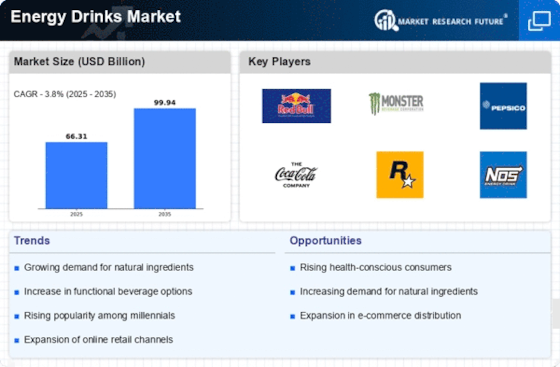
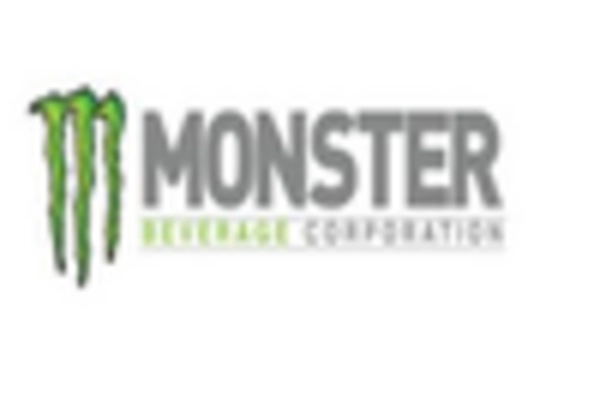
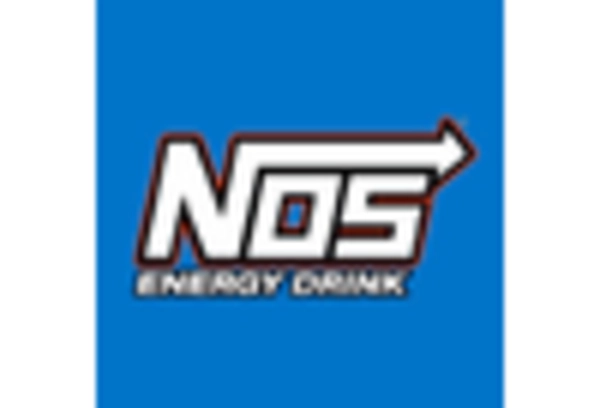
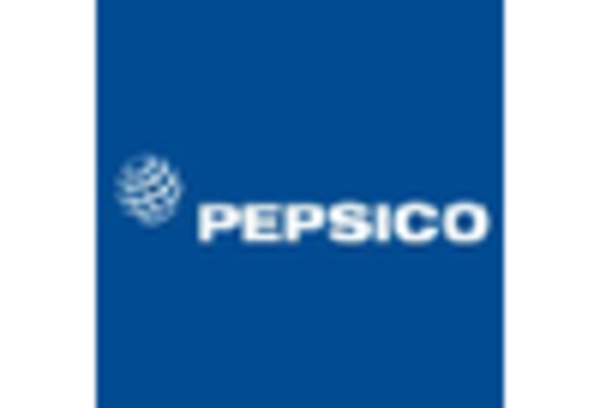
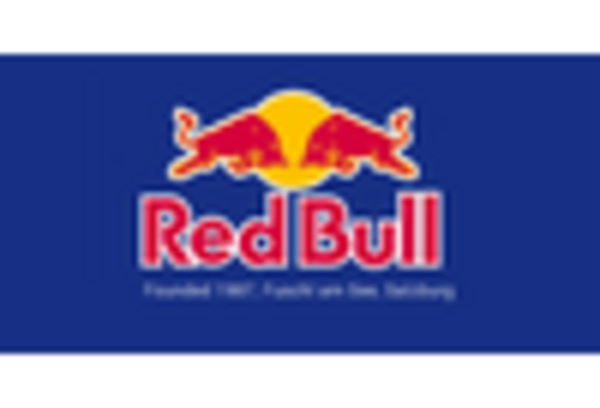

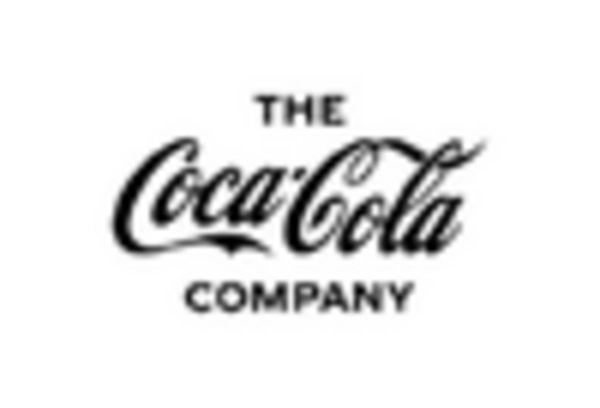









Leave a Comment